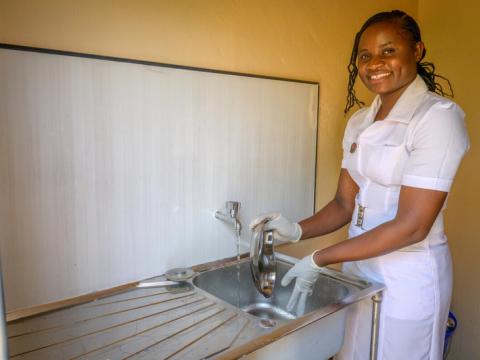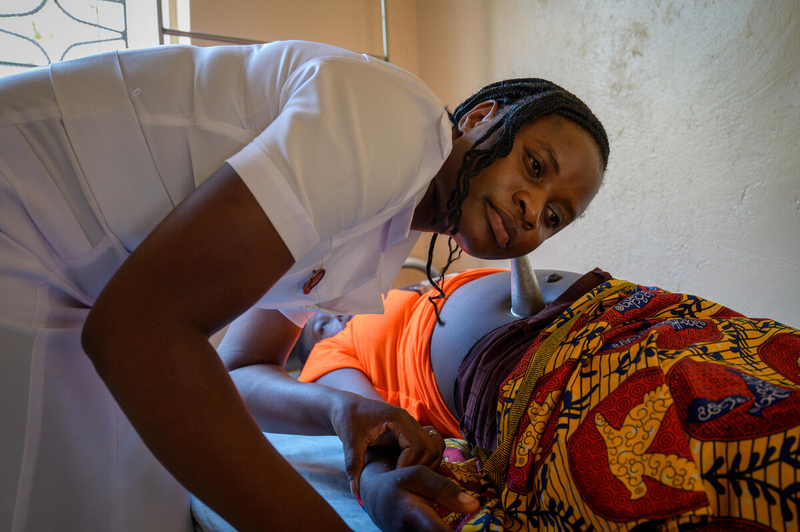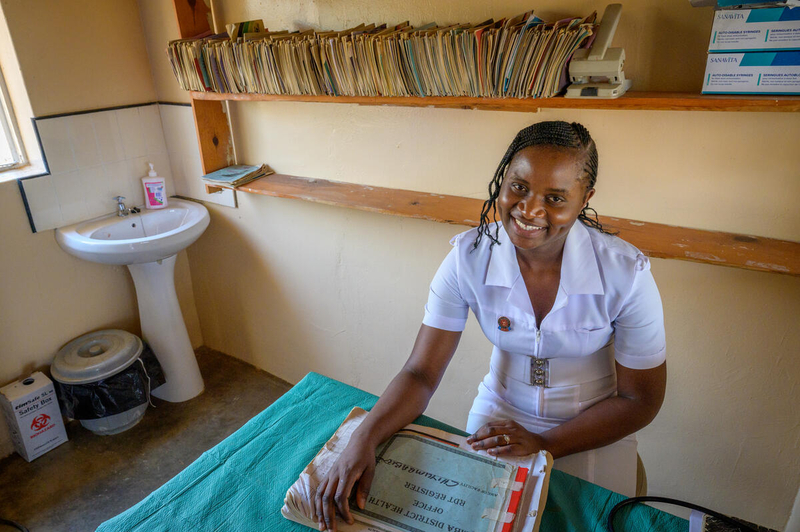Transforming Care at Chiyumbabeenzu Health Post In Zambia’s Southern Province Through Water Access

Chiyumbabeenzu Health Post is staffed by one nurse, one psychosocial support officer, and two community health assistants. In Zambia’s Southern Province, they serve a community of over 3,000 residents, attending to up to 50 patients daily. For nearly a decade, the clinic operated without mechanised water. The handpump, which supplied water before World Vision intervened, was often broken, creating significant challenges, especially for expecting mothers.

Although a nearby school also had a handpump, the 30-minute walk to fetch water was inconvenient and time-consuming. Clinic staff couldn’t afford to spend time waiting in queues for water. They asked patients and their families to bring water from the school, but with high patient volumes and the need for water to maintain sanitation and hygiene, supplies frequently ran out.
For Kasamba Muleya, the clinic’s only nurse, the lack of reliable water access severely impacted her work. Especially during childbirth, maintaining sanitation was a constant struggle.

“We were unable to wash our hands after seeing patients and delivering babies and would go home with blood stains on our clothes. For cleaning the instruments, we just waited to get water,” Kasamba explains. Infection prevention measures were often overlooked due to the time and effort required to bring water to the clinic.
Kasamba adds, “World Vision has been helpful, especially here at the facility. They’ve made my work easier. They are helping a lot, it’s not just water. We didn’t have proper toilets. We had only two toilets for 3,000 people. It was not conducive. They [World Vision] brought ablution blocks, toilets, and showers for patients. People can shower and are free to do so before going home.”
Since the mechanisation of water supply, the clinic has seen a significant improvement. On average, eight mothers now deliver their babies at Chiyumbabeenzu each month, an increase from just one or two per month before the water system was improved. With water available in the labour ward, mothers can wash themselves before and after birth, take medicine promptly, and staff can ensure a clean environment and sterilised utensils, greatly enhancing maternal and newborn care.